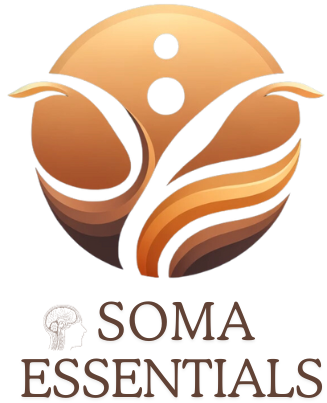Can A Strong Mind-body Connection Improve Cognitive Function And Focus?
The exploration of the potential nexus between a strong mind-body connection and enhanced cognitive function is an exciting field of enquiry in modern psychology. This article analyses the significance of cultivating a strong connection between the mind and body and its implications for cognitive function and focus. With insights from authoritative psychological studies and opinions from leading experts in this domain, it provides readers with a comprehensive look into the fascinating science that suggests such a connection may indeed contribute to improved cognitive abilities.

The Interplay of Mind and Body
The concept of the mind-body connection is a facet of health and wellness that has attracted significant attention over the years. Deeply rooted in various philosophical and scientific discourses, it postulates that our mind and body are not isolated units but intricately interconnected entities.
Understanding the Concept of Mind-Body Connection
Understanding the concept of mind-body connection necessitates acknowledgment of the mutual interaction between physical, mental, and emotional aspects of human being. It transcends the conventional biomedical model which perceives mind and body as distinct elements, asserting that mental processes can affect physical function and vice versa. These interactions can influence your overall health and wellbeing, demonstrating that health is not a siloed aspect.
Exploring the Relationship Between the Body and the Mind
Understanding the relationship between the body and the mind is holistic, acknowledging the role of psychological, biological, and social factors. This biopsychosocial model recognizes the two-way street of influence where mental states can manifest as physical symptoms, like the onset of stress-induced migraines, and physical states can have mental consequences, such as depression following a debilitating injury.
The Impact of Body’s Physical Condition On Mind
What we do with our bodies has a tremendous impact on our mind, especially in terms of nutritional intake, physical activity, and the experiences of chronic illness or pain.
The Influence of Nutrition and Exercise on Brain Health
Research consistently shows that adequate nutrition and frequent exercise are not only crucial for physical health—they also play a pivotal role in maintaining brain health. Regular physical activity has been proven to increase the size of hippocampus—an area involved in learning and memory—thus improving cognitive function. Nutritionally, a balanced diet with essential nutrients promotes brain health, delays brain aging and boosts its functioning.
The Consequences of Pain and Chronic Illness on Cognitive Function
Chronic pain and illnesses can exert detrimental effects on cognitive function. Research has reported executive functioning deficits in individuals experiencing chronic pain. Similarly, chronic conditions, such as diabetes and heart disease, can lead to declined cognitive performance by impacting brain structure and function.
Emotional Health and Its Effect on Mind-Body Connection
Emotional health plays a critical role in the mind-body connection. It can shape our cognitive function and overall performance.
Role of Stress and Anxiety in Cognitive Functioning
Stress and anxiety can considerably impact cognitive functioning. Acute stress can stimulate cognitive function momentarily, yet prolonged stress impairs the brain’s ability to process information and think clearly.
Impact of Positive Emotions on Mind and Body Performance
Conversely, positive emotions can modulate neurobiological systems linked to better cognitive performance, cardiovascular health, and robust immune system response.

Cognitive Function and Focus
Talking about cognitive function, it is integral to unravel its association with focus and attention.
An Overview of Cognitive Function
Cognitive function refers to cerebral activities that lead to knowledge, including all means and mechanisms of acquiring information. It involves processes such as memory, attention, perception, language, problem-solving, and decision-making.
Importance of Focus in Day-to-Day Activities
The ability to focus is essential to the efficient performance of daily activities, enhancing productivity, and maintaining relationships. It enables you to direct your attention, filter distractions, and accomplish tasks with higher quality.
How the Brain Processes Focus and Attention
The brain manages focus and attention using an interacting network of neural pathways involving the frontal cortex, parietal cortex, and cingulate gyrus. Alterations in this intricate network can lead to problems in attention span and focus.
Benefits of a Strong Mind-Body Connection
Nurturing the mind-body connection reaps immense benefits ranging from enhanced cognitive functioning and increased focus to improved emotional well-being.
Enhanced Cognitive Functioning
Appreciating the interplay between mind and body optimizes mental health and cognitive functioning. It’s known to improve memory, creativity, learning abilities, and problem-solving skills.
Increased Focus and Attention
A mindful body can foster greater focus, concentration and clarity of mind. It lets us be present and immersed in our tasks, increasing productivity and efficiency.
Improved Emotional Well-being
Recognizing and harnessing the mind-body connection can lead to better emotional wellbeing by facilitating emotional balance, resilience, and the ability to handle stress more effectively.
Establishing a Strong Mind-Body Connection
Here are few ways you can establish a strong mind-body connection.
Practicing Mindfulness and Meditation
Mindfulness and Meditation, by promoting focus and awareness, enhance the mind-body connection and encourage emotional stability.
Regular Exercise and Balanced Nutrition
Regular physical activity and a nutritious diet can improve physical health, boost cognitive function, and nurture a strong mind-body connection.
Benefits of Restorative Sleep
Sufficient and restorative sleep is essential to rejuvenate the body and mind, thus maintaining a healthy mind and body connection.
Scientific Studies on Mind-Body Connection and Cognitive Function
Research evidence extensively backs the influence of mind-body connection on cognitive functions and focus.
Prevailing Findings in Neurological Research
Studies have found correlations between mindfulness-based techniques, like meditation, and changes in brain structure and function, especially in areas related to attention, sensory processing, and emotion regulation.
Relevance of Neuroplasticity in Mind and Body Interactions
Neuroplasticity holds a significant place in mind-body interactions by demonstrating the brain’s ability to adapt and change throughout life. This property enables cognitive improvements and increased focus through varied experiences.
Case Studies Supporting the Influence of Mind-Body Connection on Cognitive Function and Focus
Numerous case studies and longitudinal research support that practices cultivating mind-body connection can drastically improve cognitive function and focus.
Role of Yoga and Tai Chi in Cultivating Mind-Body Connection
Yoga and Tai Chi, in particular, have gained attention for their benefits on both physical health and cognitive function.
Principles of Yoga and its Benefits on Mind and Body
Centering on personal awareness, Yoga merges physical postures, breathing exercises, and meditation to enhance mind-body connection and improve cognitive functioning.
Tai Chi as a Method of Integrating Mind and Body
Tai Chi is a mindful movement practice that incorporates mindful attention to body movements, breathing, and relaxation to harmonize mind and body. Studies have associated Tai Chi with enhanced cognitive function.
Studies Showing Improvements in Cognitive Function through Yoga and Tai Chi
Research studies have demonstrated considerable improvements in cognitive function, attention, and memory in individuals regularly practicing Yoga and Tai Chi.
Mind-Body Therapies for Enhanced Cognitive Function
Certain therapies such as body psychotherapy, somatic psychology, breathwork, and acupuncture aim to enhance cognitive functions by strengthening the mind-body connection.
Role of Body Psychotherapy and Somatic Psychology
Body psychotherapy and somatic psychology are therapeutic approaches that consider the relationship between the body and the psyche. They recognize that emotional, behavioural, and mental health issues can manifest as physical symptoms and incorporates techniques to resolve these concerns.
How Breathwork Influences Mind-Body Connection
Breathwork, which involves conscious control of breathing, is a potent tool to cultivate a strong mind-body connection and direct attention inward to achieve clarity, focus, and self-awareness.
Effectiveness of Acupuncture in Boosting Cognitive Functions
Acupuncture, a key component in traditional Chinese medicine, has shown amazing results in improving cognitive function and has been used for boosting memory, enhancing attention, and improving overall cognitive functioning.
Future Research and Conclusion
Even with existing scientific support, there’s still significant room for further exploration into the mind-body connection and its influence on cognitive function.
Potential Areas for Future Research
Areas inviting future exploration include developing standardized interventions enhancing the mind-body connection and examining their long-term effects on cognitive and emotional health.
Encapsulating the Importance of a Strong Mind-Body Connection
The mind-body connection isn’t merely a fascinating concept. It carries genuine implications for our everyday functionality and overall health. It enlightens us about our abilities to improve our cognitive function, focus, and emotional wellbeing.
Concluding Argument on the Impact of Mind-Body Connection on Cognitive Function and Focus
In conclusion, fostering a strong mind-body connection can significantly improve cognitive function, focus, and overall health. It underlines the importance of holistic health approaches including psychological, physical, and social aspects of wellbeing.

